World Health Organization
Latest

Plague Inc.'s new 'The Cure' mode is free until the coronavirus pandemic ends
The new mode reverses the title’s usual gameplay loop in which you design a virus to wipe out the human race.
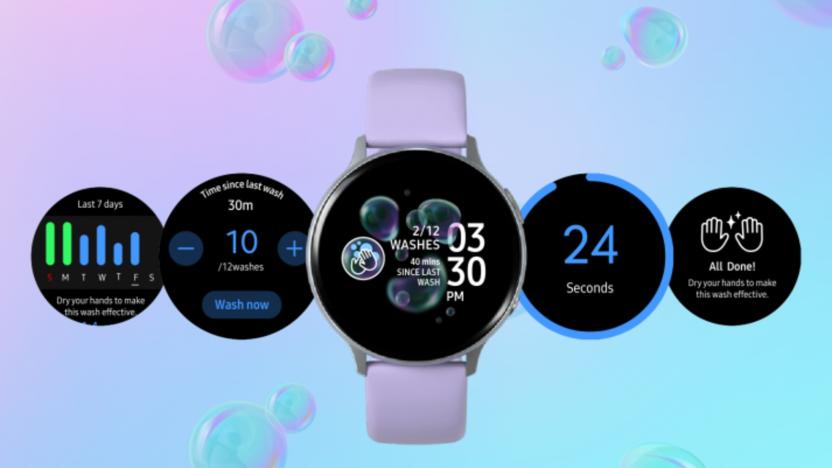
Samsung's latest smartwatch app reminds you to wash your hands
Following Google and Wear OS, Samsung has created a hand washing app for its smartwatches.

WHO debunks coronavirus misinformation on Facebook Messenger
Facebook and the World Health Organization (WHO) are again teaming up to make it easier to find reliable information about the coronavirus.
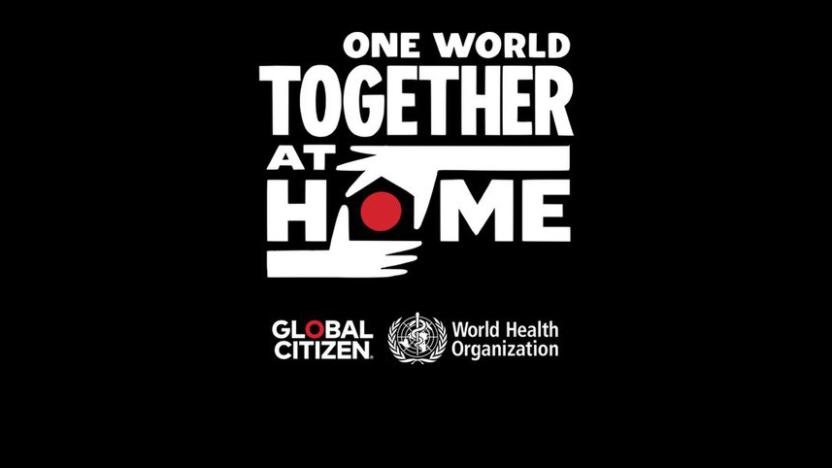
Late-night hosts will help stream a COVID-19 benefit concert on April 18th
On April 18th, late night hosts and celebrities will participate in One World: Together At Home, a virtual benefit concert to raise money for the COVID-19 Solidarity Response Fund.

The Weather Channel brings localized COVID-19 updates to your phone
The Weather Channel and its parent company IBM (yep, who knew?) have teamed up to bring coronavirus data, maps and charts to your phone. They're importing data from sources like the World Health Organization (WHO), and including info from reliable local and state sources, so you can get a picture of how the virus is spreading near you, across the country and around the globe.

Save the world from a pandemic in the next 'Plague, Inc.' update
Plague, Inc. lets you become a mad scientist. You design a pathogen and release it upon the world, trigger certain evolutionary traits and -- if all goes according to plan -- wipe out the human race. The game came out eight years ago, but the relevance of the game during real-life events like the current coronavirus pandemic and the ebola outbreak of 2013 keep bringing people back for more. To help make the game a little less morbid, Ndemic Creations will add a new mode to Plague, Inc. that lets you take on the opposite role and save the world from a global disease. The designers are working with the World Health Organization, the Global Outbreak Alert and Response Network and other groups to create an informative experience. Though a release date hasn't been announced, the update will be free for all players.
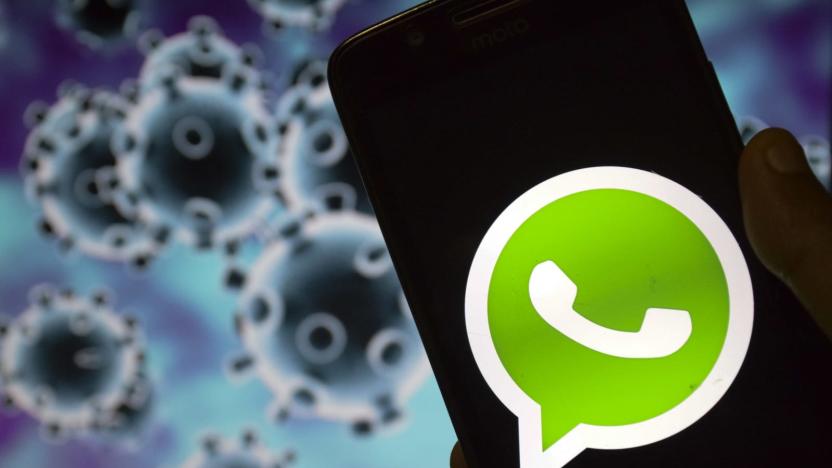
WhatsApp and WHO create a chatbot to share reliable coronavirus info
In an attempt to help users find accurate coronavirus information, WhatsApp and the World Health Organization (WHO) have launched a chatbot that will answer questions about the pandemic. When users text "hi" to the new WHO Health Alert (+41 79 893 1892), the service will respond with a series of prompts, the latest data and a few emojis. In addition to fighting misinformation on the platform, this could also help government decision-makers find the latest numbers and situation reports, WhatsApp says.
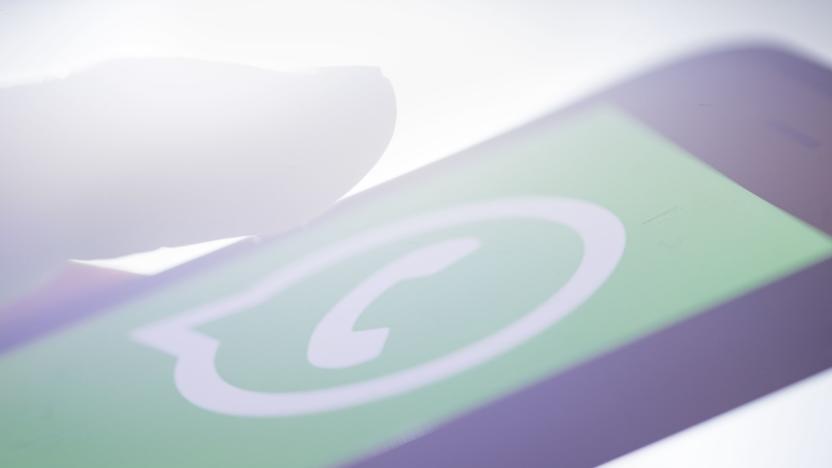
WhatsApp debuts coronavirus fact-checking hub
WhatsApp can be more than a messaging app -- in Europe, India and other parts of the world, it's a social network in its own right. To help avoid the spread of misinformation about the coronavirus pandemic, the company -- which is owned by Facebook -- created an information hub that provides advice on how users can look after friends and family, stay cognizant of the latest developments and share verified information. The website was launched in partnership with the World Health Organization, UNICEF and UNDP, and is meant to help in more than just a social context -- healthcare providers, educators, local governments and businesses can learn how to best connect with one another while social distancing is advised.

Pinterest is combating coronavirus misinformation with custom search results
Pinterest is taking a proactive step to stop the spread of coronavirus-related misinformation. The company told The Verge it's introducing a "custom search experience" to ensure its users can get reliable information when they turn to the platform for information about the epidemic.
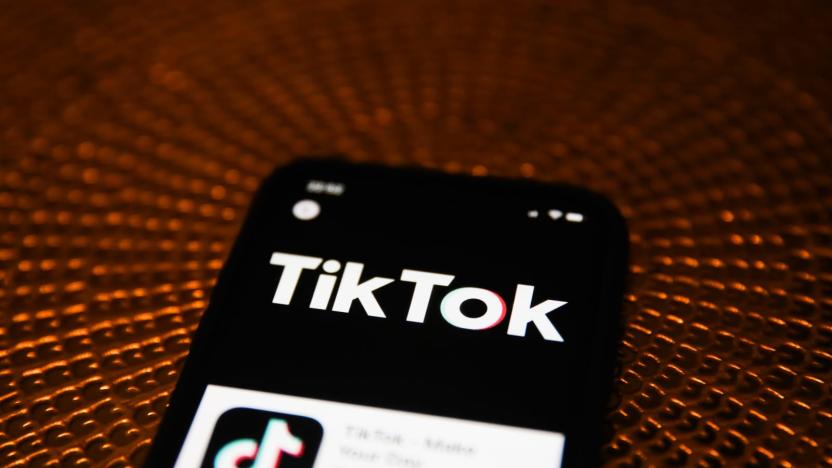
WHO joins TikTok to fight coronavirus misinformation
The World Health Organization clearly has an interest in putting a stop to coronavirus misinformation, and that's leading it to online destinations it wouldn't have considered before. The WHO has joined TikTok, and its first videos are, unsurprisingly, aimed at both reducing the risk of spreading COVID-19 and setting the record straight. They explain how you can safeguard yourself and others against the virus, how to use a mask and whether or not you need a mask in the first place -- crucially, the WHO stresses that you don't need a mask if you aren't experiencing symptoms.
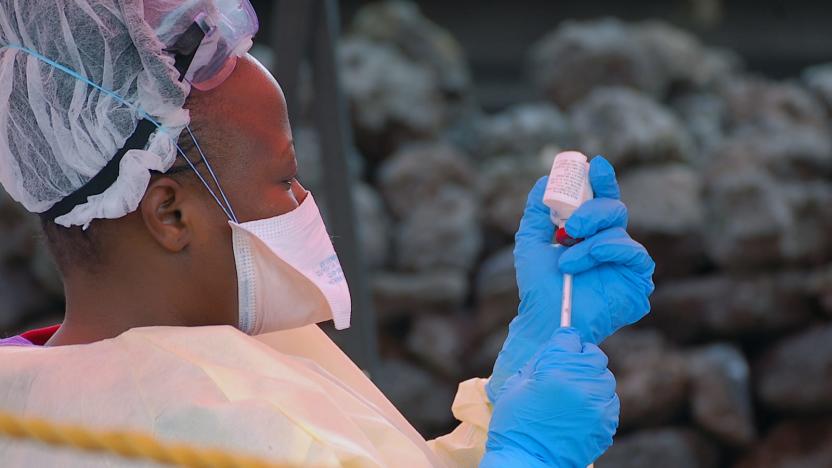
The EU just approved a vaccine to prevent Ebola
Today, the European Union granted an Ebola vaccine "conditional marketing authorization." The vaccine, developed by the pharmaceutical giant Merck, is known as Ervebo. It's the first human Ebola vaccine to be approved by the EU.

Facebook and Messenger’s new camera filter, stickers focus on mental health
In honor of World Mental Health Day, Facebook has launched a couple of features that it hopes will bring awareness to the cause and help people who may need emotional support. For starters, it worked with the World Health Organization (WHO) to create a camera filter for Facebook and Messenger Stories called "Let's Talk," which the company says is designed to be an invitation for friends or family to reach out for support if they're struggling. According to Facebook, based on a survey it conducted in the US, UK and Australia, 80 percent of people who participated said they could be more honest when using messaging apps, rather than speaking to someone in person -- hence why it thinks these features could be helpful.

Facebook debuts new notifications to fight vaccine misinformation
Following on the heels of Pinterest, Facebook is launching a new initiative aimed at combating anti-vaccine misinformation. Moving forward, whenever Facebook users search for vaccine-related content, including through groups and hashtags, the social network will display a card that prompts those individuals to instead obtain information from a credible source. In the US, the notification will direct people to the website for the Centers for Disease Control and Prevention (CDC). In other parts of the world, those same notifications will send people to the World Health Organization (WHO). Instagram will do the same on its platform.

Seawater desalination will quench the thirst of a parched planet
Humanity has sought to make the Earth's oceans potable for thousands of years. The Norse tale of Utgarda-Loki tells of Thor being tricked into drinking from a horn connected to the sea, while Exodus 15:22–26 of the Bible likely describes Moses desalinating the water of Marah:
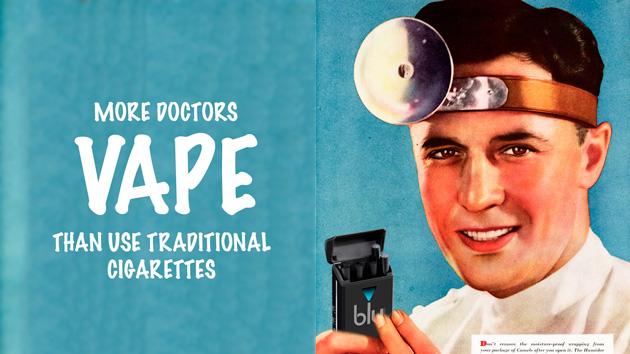
The World Health Organization is officially against e-cigarettes
Doctors think that the World Health Organization should ease off against electronic cigarettes, if only because the dangers have to be less harmful than the real thing. For its part, however, the WHO disagrees, publishing a report saying that it wants these nicotine delivery systems to be regulated with the same scorn as cigarettes and cigars are today. Research into the relative harm of "electronic nicotine delivery systems" is still pretty nascent, but the report claims that while the water vapor they emit has a smaller concentration of nicotine, it may spread more widely in the air -- increasing the risk to children and pregnant women in the vicinity. The WHO concedes that e-cigarettes are preferable to the real thing, at least for now, but only in nations where tobacco smoking is being rapidly reduced. The downside, of course, is that there's no consensus -- beyond a few studies -- that the technology actually helps people to kick the habit.

Doctors urge the World Health Organization to lighten up on e-cigs
The World Health Organization suspects that e-cigarettes should be treated with the same regulatory scorn as Tobacco, even if it hasn't yet made this conclusion legally binding. A group of 53 doctors, however, are now urging the WHO to take a gentler approach. They've signed an open letter admitting that while the dangers of vaping aren't fully known, the technology is vastly preferable to people choking down on the real thing. One of the signatories, Professor Robert West, can back up his claims with the study he published last week, which says that e-cigs are much more effective at getting people to quit than patches or cold turkey. We're expecting a lot more back-and-forth on this matter in the next few months, since the WHO's anti-smoking treaty group doesn't meet to reveal its final decision on the vaping issue until mid-October. [Thanks, Ronny]

Cellphones are dangerous / not dangerous: little tykes under the spotlight
In the rough and tumble debate surrounding the mobile phone's ability to cause cancer, both sides agree that our young ones -- indeed, some of the heaviest users -- could be at an increased risk for cellular-induced tumors. According to a study published in the Journal of the National Cancer Institute, the radio emissions from mobile devices penetrate much deeper into the brains of children, and in the case of little tykes ages five to eight, their noggins will absorb twice the energy of the average adult. This, combined with their developing nervous systems, has brought concern for the welfare of our youngest mobile-savvy citizens, and led to a European study of nearly 1,000 (informed?) participants. Data was gathered over a four-year period, which relied upon self-reporting methods, where youngsters were found to not talk very often, and typically sent text messages instead -- big surprise, right? While long-term risks remain unknown, the researchers conclude that "a large and immediate risk of cellphones causing brain tumors in children can be excluded." In other words: little Suzy won't begin sprouting cancer cells overnight. While you doting parents may find comfort in the latest research, you might consider stopping short of giving the mischievous rascal an unlimited voice plan. After all, gossip still spreads best at the school yard. [Image courtesy Derek Olson (flickr)]

Cellphones are dangerous / not dangerous: Danish chatterbox edition
Concerned that a decade and a half of regular cellphone will have a long-term effect on your health? Hopefully the latest study conducted by members of the World Health Organization (WHO) will put your mind at ease. The examination followed nearly 3 million Danish adults, studying links between phone use and the formation of acoustic neuromas -- non-cancerous, slow-growing brain tumors that form on the main nerve that connects the inner ear to the brain. The study concluded that people who've used a handset for 11-15 years weren't any more likely to develop a tumor than those who don't use cellphones at all, though scientists are unsure that this is a long enough period of time to determine a significant correlation (or lack thereof). Still, this comes as refreshing news two months after the WHO released a study revealing that RF waves coming from phones are "potentially carcinogenic," due to a limited link to glioma and acoustic neuroma. Of course, none of these reports can actually conclude that cellphones cause cancer -- only that the two may be correlated. So, what does this latest study really do? It legitimizes the need to conduct more studies.

Research doubts link between cell phones, cancer
Back in May, the World Health Organization (WHO) issued the controversial results of a study that linked frequent cell phone usage to certain types of brain tumors. Now a scientific journal, Environmental Health Perspectives (EHP), has published an overview of similar studies that casts doubt on any links between cell phones and cancer. The journal notes that the WHO report was attempting to classify what kind of cancer risk might exist, not the actual probability of developing cancer. EHP had issues with the reliability of the WHO study, which asked 13,000 phone owners to remember cell phone usage from many years ago. The EHP authors mentioned that a number of other studies have not seen a link between cell phones and cancer. The importance of the EHP report lies in the fact that the journal has no connection at all with the cell phone industry, therefore reducing concerns of bias.

Cellphones are dangerous / not dangerous: cancer experts say 'What, me worry?'
If you haven't already gotten whiplash from the ongoing cellphone-cancer debate, a freshly released scientific review might just do the trick. In the paper, published Friday, a panel of experts from Britain, Sweden and the US conducted a thorough survey of previous studies, before concluding that existing literature is "increasingly against" the theory that cellphone use causes brain tumors in adults. The researchers also questioned the biological mechanisms underpinning this hypothesis, while acknowledging some lingering uncertainties, since data on childhood tumors and longer-term research are still lacking. The results come just a few weeks after the World Health Organization released its own literature review, in which it claimed that cell phones should be considered "potentially carcinogenic." But Anthony Swerdlow, a professor at Britain's Institute of Cancer Research and leader of the most recent investigation, said his group's work doesn't necessarily contradict the WHO, since the latter was simply seeking to evaluate cancer risks according to its own "pre-set classification system" -- under which things like pickled vegetables and coffee are also considered "potentially carcinogenic." Unfortunately, this doesn't mean that the debate will die down anytime soon, though Swerdlow expects more definitive conclusions within the next few years -- assuming, of course, that all of our brains haven't turned to oatmeal by then.










